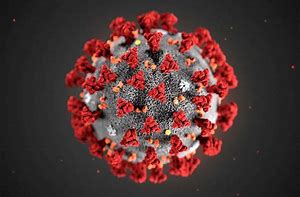 I find myself more frequently using politically correct phrases (though I despise the term itself). Perhaps, it is fortunate that ‘political correctness’ was foisted on our language since the alternative is that we would have to resort to using ‘two bad wud’ in many situations. This past week may end up being my most personal politically correct week of my entire life. When the Health Minister jumped in the brew of the sterile and possibly utterly useless (in social terms) debate and declared the choice is “Rights or Death”, it is ‘a binary choice’, I had to shout within ‘how unfortunate’. There is NO choice between Rights and Death. The entire bruhaha has arisen over different opinions concerning the measures adopted by the Government to address the COVID19 ‘emergency’ or ‘crisis’ as the PM described it from early o’clock. Yes, there is a serious threat to the health and lives of the citizens of this country. In fact, as the statistics of this declared pandemic show, as at today’s date, more than 210 countries and territories are affected with 2,958,375 cases and 205,407 dead. The vast majority of cases and death in the countries which are labelled ‘first world’ or most advanced or develop among the global nations. Our country is second only to Jamaica in cases but first in deaths in the English-speaking Caribbean. This is a health threat of humungous proportions. The measures taken by almost all countries are similar in content, if not form, as dictated by the necessity to avoid the worst effects of infection among populations and the fact that there is yet no proven cure or preventive medical tool. Every country, according to their own legal provisions, social system, culture, etc. have reacted in much the same way. Rights and Life (a fundamental Right itself) are not in competition or contradiction. In this country, there is a dilemma for any administration in this situation. In the face of a public health threat of this proportion, our laws contain two strands of legal weaponry – the public health legislation – the century old unamended Public Health Ordinance and the Quarantine Act of World War II vintage amended last in 1978 and the Emergency Powers in the Constitution (Part III section 7) which will of necessity suspend all Constitutional Rights if invoked. The choice of legal weaponry is a political choice of Government possibly more so than a legal decision as the incredibly old public health law is ‘saved’ (preserved) by the very Constitution (section 6). That choice of legislation to use is NOT a binary choice either. In different Caribbean countries, either or both have been employed by various governments). The irreconcilable contradiction – binary choice – that the Health Minister believes exist is simply a figment of his political imagination. Historically, governments in this country have almost exclusively used the emergency powers of the Constitution and the Emergency Powers Act before it, for political purposes including silencing opposition political parties, putting down real or perceived threats to Government from the masses, smaller groups or even an individual House Speaker. So, the reluctance of the present PNM administration to utilise those powers in ‘public emergency’ including ‘the occurrence of…infectious disease..”(s. 8 (2)), unlike previous incarnations of that particular party-in-power as political choice is apparent. The option of ‘Moral suasion’ is not enforceable law. It is Government policy at best, self-comfort at worst. The ancient Public Health Ordinance provides the possibility of measures to combat the spread and worst effects of the rampaging infectious disease. The only additional tool provided by the Emergency Powers is the complete suppression of fundamental Rights and expansive police powers. The problems that have arisen have not arisen because of the legislation or the Government’s choice of legislative weaponry but from the implementation and enforcement by “law enforcement” as is now fashionable to refer to them. I also had to be politically correct, though horrified, when the Commissioner declared the or one role of ‘law enforcement’ is the implementation of Government policy, to again declare, how unfortunate. The Independence of which from political interference or direction has been clear since the days of the seminal Privy Council decision in Endel Thomas v the AG, a pillar of our Constitutional law and which this CoP has defended on many occasions. Perhaps, the most dangerous thing in choosing to use archaic legislation which every Government since Independence has promised but failed to modernise except the increase in penalties for breach of Regulations by this Parliament in this crisis, is the assumption by law enforcement of ‘powers I think I have, I DO NOT’. For those, who claim they have scored a major victory for exposing this fundamental flaw without going to the point of demanding correction of the law, in a basic social development and governance improvement sense, there is no real advance. As the Health Minister has erected the ‘windmill’ of binary choice, so too, have those who have sought little more than to score points, political or otherwise, against the Government, but have made no contribution to advancing our Governance in preparation for the next episode of public emergency of this type. In this land of robber talk and double entendre (intend) sorting through the political posturing on ‘both sides’ as Daly SC put it this week, it is difficult to maintain my ‘politically correct’ posture and demand that the 2-party political monopoly desist from their self-serving ambitions and put the National Purpose First. Clyde Weatherhead A Citizen Fighting for Public Right over Private Right. 26 April 2020  The current annual food import bill of Trinidad and Tobago stands in excess of $5 Billion Dollars (TT). There is no coherent agricultural development policy or plan. There is no Food Security or Food Self-Sufficiency plan from official quarters. In developing proposals for a Recovery and Beyond Plan, proposals for the agricultural sector and feeding the nation are included. Below is Part 1 which provides an analysis, in brief, of how and why this country has moved from being a net exporter of cash and food produce to being a net importer with massive food import bills which have skyrocketed in the last 5 decades. ************ Let’s start this story from the start. In the beginning, there was colonial conquest and annexation of these 2 islands (and the others of this island chain). Agriculture using unpaid labour of dehumanized slaves and later, indentured labour, producing mainly inputs for the factories of the colonial power. The produce from these islands were called primary exports and the economies of these annexed lands were called plantation economies. The main crops were sugar and cocoa - the monocrops here. The other Caribbean islands produced bananas and other crops. These crops were so important to the imperial power’s manufacturers and merchants that they created an Imperial College of Tropical Agriculture (ICTA) in Trinidad, on August 30, 1921, to do research to boost production of the various input crops produced throughout the British Empire. For instance, bulk cocoa production was done in Africa and the taste of the chocolates produced in England was improved by the ‘premium’ flavouring cocoas bred by the ICTA and grown in these 2 islands mainly. Food crops necessary to keep the labour power alive and working was just enough for that purpose. After Emancipation (1834) and again after the end of Indentureship (1917), food production expanded by the ‘free’ labourers to supply the domestic demand. In Tobago, partly because of the Metayage system under which the ex-slaves produced mainly food crops, food production flourished. By the 1920’s, Tobago was called the Food Basket of the Caribbean, exporting food crops, fruits, etc to Trinidad and other Caribbean islands as well as Venezuela. In Trinidad, food production including vegetables and rice expanded in different parts of the island. Coconut and citrus production were also large scale and provided inputs on the island - Coconut and Citrus Growers Associations - located near the capital. The products of these factories became export products. By Independence (1962) oil production in Trinidad and tourism in Tobago, to a much lesser degree, became major GDP contributors. Oil replaced sugar and cocoa as the major export ‘monocrop’ and main source of Government Revenue. Estates (cocoa, coconut, citrus) all over the country were in difficulty. The Central Marketing Agency’s (CMA now NAMDEVCO) farmgate truck collection system for food crops in Tobago was abandoned. Agricultural production overall began to decline. The abuse of the best agricultural lands (according to the land capability study published in 1965) for housing in Diego Martin, Valsayn, etc in Trinidad and for hotel development at Mt. Irvin and elsewhere in Tobago expanded. Livestock farming was allocated to some of the least productive soils making grass-fed animal production almost impossible. A series of Oil and Food Conferences in the 1970’s promoted the notion of large scale ‘mega farm’ production (1000 acres, etc) to develop new export crops - Corn and Soya at Chaguaramas and Piarco, for example. Land tenure issues facing small farmers have never been satisfactorily resolved. The import and distribution of agricultural inputs from seeds, chemicals, feeds, machinery and equipment were monopolized by the merchant conglomerates. They also controlled the import and distribution of processed foods through the wholesale merchant and retail supermarket chains. Small farmers producing vegetables and root crops were marginalized on both islands with poor marketing systems, land tenure issues, hostile competition from imported food products, poor irrigation and drainage systems, competition for labour from Government make-work schemes from Special Works to DEWD, LID to CEPEP. The dairy production to feed the multinational Nestlé factory (which squeezed out local milk producers) expanded and eventually died as the factory abandoned production here for more profitable imported products. The same multinational also destroyed the citrus industry in similar manner. Despite the Government and UWI agriculture faculty (successor of the ICTA) research in small ruminant agriculture, including the Sugarcane Feed Centre, the sector has declined on both islands because of marketing and other issues. Rice production has also suffered a similar fate. The only large scale production that has succeeded is the poultry industry with a monopoly of processors extracting profits based on onerous contract farming arrangements and later their own ‘factory farming’ establishments. The “localization” of the failing sugar industry in the wake of the 1970 Revolution failed to save the industry largely because of failure of Government to implement measures recommended in several reports from Government-appointed Committees on the industry. The IADB agriculture sector loan contracted by one regime in the early 90’s and drawn down by the other in the late 90’s was used to finally shut down the industry. Again, the importers interests won out. There has been NO coherent agricultural plan or food security policy by all Governments for the last 58 years of Independence. Research and proposals for import substitution like Professor Sammy’s cassava flour production project in the 1970’s; the Sugarcane Feed Centre (SFC) sugar cane/molasses feeding technology for dairy and small ruminants; the Buffalypso project have not been aggressively applied/rolled out by successive Governments even when they funded them. The SFC technology is being utilized in Suriname, but not widely in TT where it was developed. State agencies in financing, marketing, imparting in the agricultural sector have made no real difference in the absence of a coherent development policy for the agriculture sector of the economy and the over-reliance on the hydrocarbon sector and absence of a strategy and action to diversify the productive base of the economy. The food importers, including those with monopoly control imports of inputs continue to be the biggest beneficiaries in the sector.  Trinbago is now into week 6 of active combat with the COVID19 virus. This situation is forcing us all to reflect on the Real (not fanciful) state of many critical aspects of our ‘happiest place on the face of the earth’. Reality is coming face-to-face with us hopefully with a most sobering effect. COVID19 has become the great revealer and has brought reality face to face with us, if we only open our eyes and minds to its messages which are not mixed, or spin doctored. So many decisions which have been kicked like the proverbial can down the road have hit the end of the cul-de-sac. Whether in the economy, social, cultural or political spheres Reality demands that we confront the issues. At the centrepiece of our economic reality is the persistence of the colonial model of ‘one-crop’ economic structure. Though, this time without even a single cash crop of the estates of the empire to earn desperately needed foreign exchange. The failure and/or refusal to diversify (bad word) our productive base and capacity has left us totally dependent on the hydrocarbon monocrop at a time when it’s own crisis globally once again threatens the health of our economy, just as COVID19 threatens our physical health and existence. The price Russian-Saudi price war aimed partly at combatting the US shale advance has had the completely opposite effect as the 1973 OPEC challenge to the big powers of the world. Instead of oil boom, this time we face plummeting prices for a commodity the output of which is also severely diminished. Gas production, the lifeblood of a hungry greedily expanded Pt. Lisas model now is becoming financially unattractive as the cost of exploration and extraction increases inversely as price plunges. The stopgap measures of a ‘restructured’ Petrotrin has not yielded any significant increase in oil production and left us dangerously exposed to supply-chain interruptions spawned by the ‘invisible enemy’, the pandemic. The old export crops have either been eliminated (sugarcane, citrus, coffee, Tobago pigeon peas) or reduced to cottage operation seeking niche markets (cocoa) for SME chocolate-makers striving to squeeze some benefit out of the struggling remains of our Trinitario flavourful beans that were top dog in the world market in earlier times. The rejected attempts to provide alternative flour sources proposed by George Sammy in the 1970’s. The discarded Sugarcane Feed Centre technology of alternative feeding regimes for bovines and small ruminants. The rejected building blocks, now are the missing cornerstones desperately needed to feed ourselves and dampen the constantly escalating food import bill, fueled by the dominance of the merchant chains that have redesigned our appetites by a combination of demand-creating lifestyle advertising and control of the import supply chains. It is little surprise that our Agriculture Minister has admonished the population for not accepting his ‘reality’ that there no feasible alternatives to imported food. After 57 years of Independence, we have never developed, far less implemented a coherent strategic agricultural sector plan. In fact, as reality now makes plain, we have developed no comprehensive national development plan for the building of an economy that fulfills the needs of the population. in all these years. There has been no planned development of the economy, social structure or political infrastructure to provide any guarantee of the Rights of the Majority of our body politic. Our healthcare system has been on a trajectory of tertiary institution building since the abandonment of the primary-care focus of the 1978 WHO Alma Ata Declaration to which we were a signatory. Will we emerge from this critical moment with a desire for comprehensive planning and REAL decision-making for Development; defining the National Purpose as Geddes Granger’s PEGASUS Project Independence had called for in 1967? Or will we be provided another round of ‘magnumicent’ dictate by a Party-in-Power now growing accustomed to Rule by Fiat facilitated by a 100-year old PH Ordinance and a compliant Opposition? Thankfully, the remnants of our Public Health system have become central to our response to the viral threat, leaving us to rely on a century-old Ordinance to bolster our war to defeat COVID. We owe our health workers a debt of gratitude which we may never be able to calculate, far less satisfy. Thankfully, also, despite of decades of effort to sell our society as a bunch of people just waiting for the next fete or lime and doh-care folks infused with a Carnival mentality, our people have confirmed my faith in them by, in absolute majority, acting magnificently with responsibility and care for one another and ensuring that COVOD’s threat is minimised. One can only hope that at least a larger portion of the body politic awakens to the necessity of the direction advocated in the first people-developed plan presented in1967. The fact that the call for National Purpose by some citizens has emerged in the conversation amid the current challenge points in that direction. Clyde Weatherhead A Citizen Fighting for Democratic Renewal and Real Development of our Society 12 April 2020 |
AuthorI am a appalled at the loss of the simple skills of discussing ideas and sharing Opinions to DEEPEN ANALYSIS and UNDERSTAND DEVELOPMENTS to ARRIVE AT SOLUTIONS. Archives
April 2024
Categories |

About Clyde Weatherhead
Clyde has been involved in public life as a political activist, a trade unionist, Lawyer, Teacher and Author |
Connect With Clyde
Write to Clyde on Facebook Visit Clyde's Author Page on Amazon Go To Discussion on Facebook For Employment Relations Issues |

 RSS Feed
RSS Feed